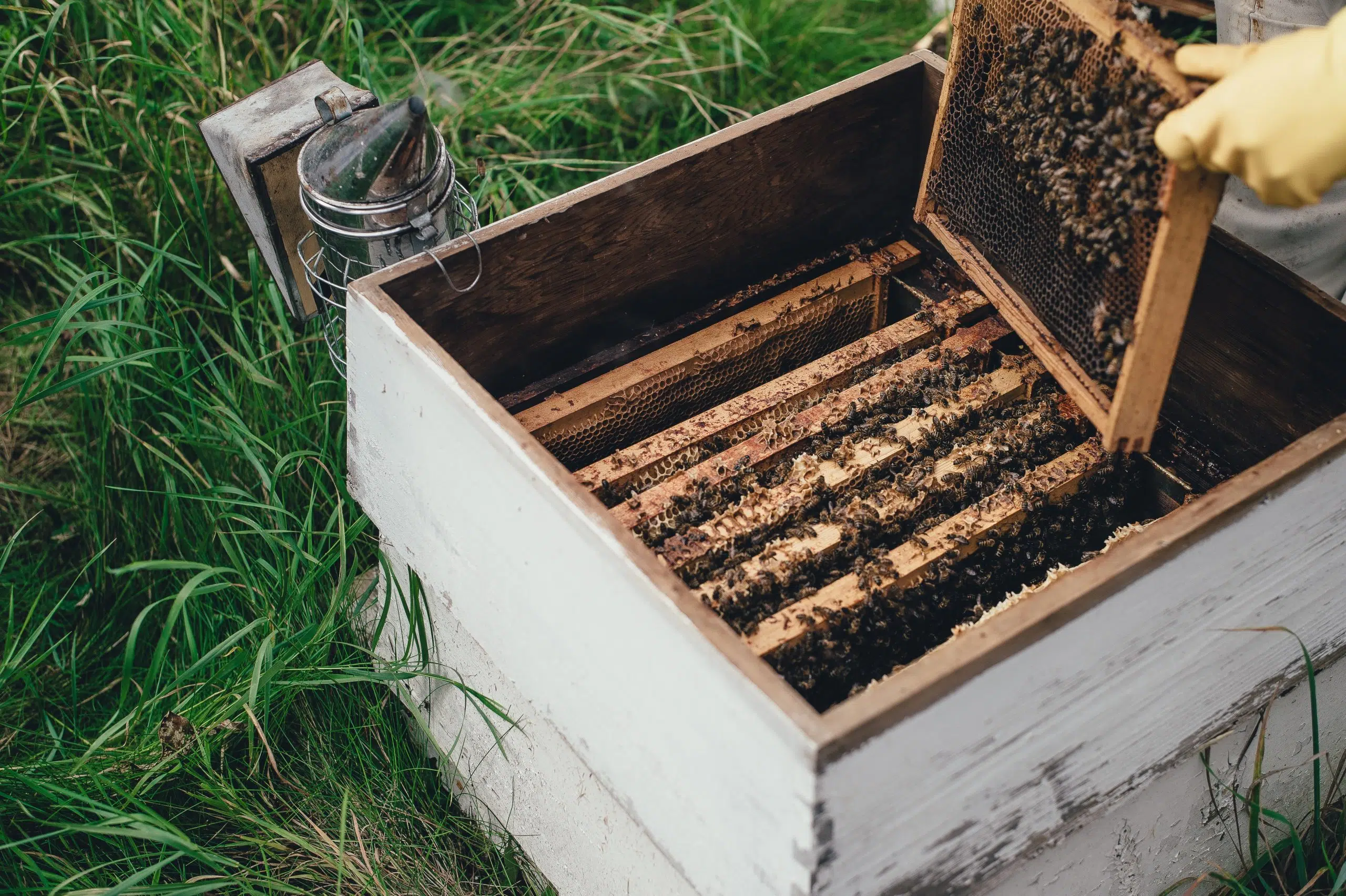Public outcry over a proposed hobby beekeeping bylaw in Quispamsis has the town taking another look.
Council has asked town staff to address concerns from the community and come back with possible changes.
It comes after more than a dozen people spoke out against the bylaw during a public hearing Tuesday night.
Council requested changes to its zoning bylaw last spring after two residents complained about bee droppings on their property.
Jocelyn Smith and Joni Moore said bee droppings have taken over their property on Cedar Grove Drive.
“Our enjoyment of our outdoor space was being severely compromised by the number of bees that were being kept by our neighbours,” Smith told council during Tuesday’s hearing.
The yellow globs, which range from circular to linear in shape, are sticky and difficult to remove from surfaces, she said.
Opponents to the proposed bylaw, however, raised a number of concerns about what could happen if the town limits beekeeping in the community.
“Our concerns are that this new proposed amendment, although well-intended, will have some serious consequences,” said Ryan Golden with the New Brunswick Beekeeping Association.
Golden said the association is not necessarily trying to stop urban beekeeping bylaws but wants to ensure any bylaw works for both residents and beekeepers.
Many speakers said the limit of two hives per lot in a residential zone and four on rural properties are too restrictive.
“This will significantly handcuff the beekeeper to their options and they may have to just let their hives swarm in such instances if they are not allowed to split their hive and start a new one,” said Golden.
“A swarm occurs when the bees outgrow their current home and half the bees will leave to find a new residence. This can lead to bees ending up somewhere where they are not welcome as a beekeeper splitting colonies is a way to mitigate swarming.”
A number of residents also blasted a proposed $300 fee to appear before the planning advisory committee (PAC) each year.
Jennifer Jarvis, the town’s planning technologist, said the town could structure it as a “one and done” process so residents would only have to appear before PAC once unless they make changes to their operations.
The proposed bylaw would also require beekeepers to provide proof of liability insurance — something many speakers said is difficult to find.
Resident Joe Doucette did not mince words when expressing his opposition to the proposed bylaw, calling it “absolutely crazy.”
“Without bees, we don’t have food. Without food, we’re gonna die,” said Doucette.
Duncan Webster, a microbiologist, said he thinks regulations are important but described the current bylaw as “flawed.”
Jennifer Anderson, who has called Quispamsis home for 20 years, said the bylaw has upset her so much that she has considered moving.
“This bylaw is scaring me. It’s scaring me for our children, our grandchildren, the effect of it if it snowballs,” said Anderson.
Jarvis, meanwhile, said the town is not against bees but is trying to find a balance for the residents that are having issues with bees and, of course, with the people who want to have bees in their backyard.”
Deputy Mayor Mary Schryer brought forward a motion asking town staff to work with the beekeepers association to address concerns and come back with possible changes. The motion was passed 5-1.
Coun. Noah Donovan, the lone dissenting vote, said he has decided not to support any sort of hobby beekeeping bylaw.
“While I am very empathetic to the two residents who came forward and understand that they have unfortunately had their fair share of issues, I am also wary of turning Quispamsis into a community made up of every variety of bylaw.”




